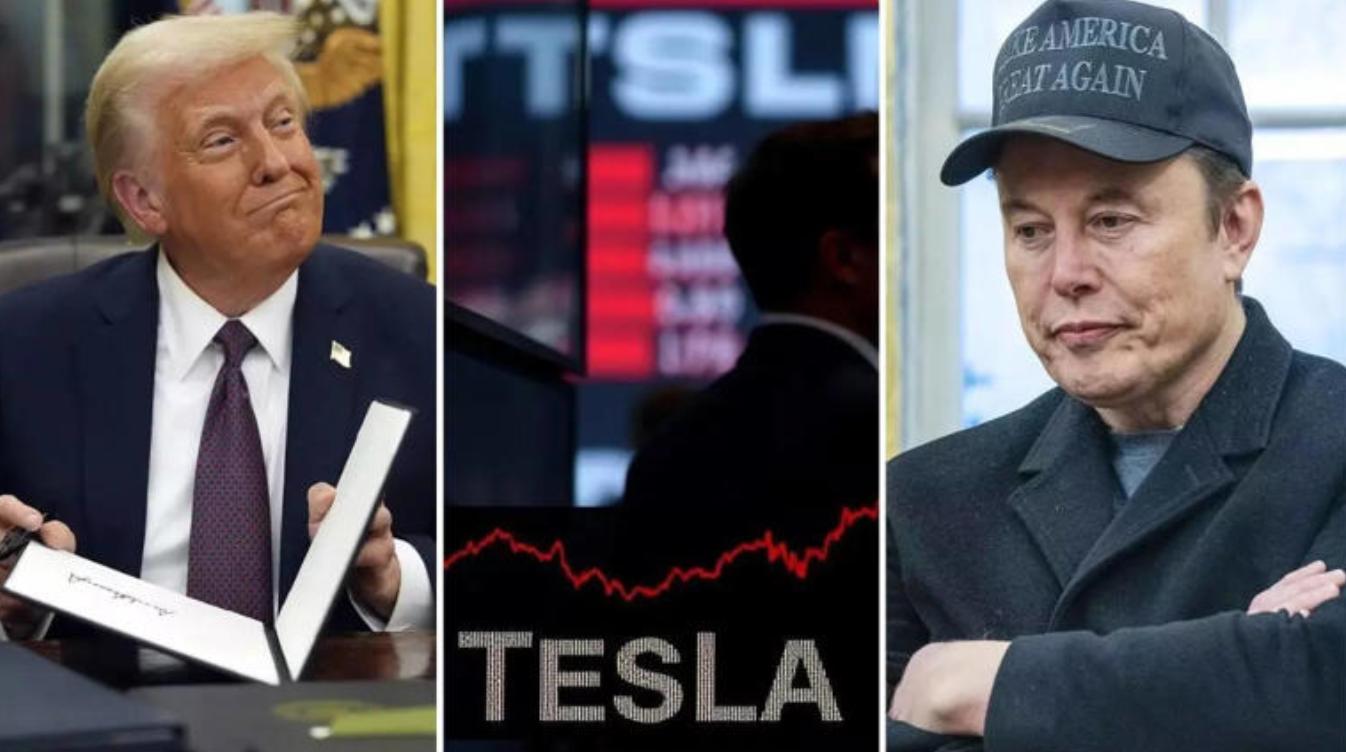
Although the public conflict between Elon Musk and US President Trump has temporarily subsided, the market turmoil caused by it is not over yet. The controversy over Tesla's stock prospects is intensifying as investors begin to reassess Tesla's upcoming earnings report and are cautious about the future of its self-driving taxi business.
First, the verbal exchange between Musk and Trump has caused high market volatility. Tesla's stock price fell by about 8% overall in June, while the S&P 500 index rose by 2% during the same period. The decline in stock prices was more significant when the controversy reached its climax, reflecting the market's concerns about Musk's broken relationship at the political level, especially whether Trump will take targeted measures to affect Tesla's operations.
Second, although Trump has temporarily eased his criticism, investors are still highly vigilant about Trump's political style of "Trump does not easily forget grudges." Musk's "out of the circle" marks that he is no longer a key figure in the core of Republican power, which poses a potential risk to Tesla's policy environment. After the 2024 election, some market analysts had expected that Musk's alliance with Trump could push millions of self-driving Teslas onto the road and promote the extension of electric vehicle tax incentives. However, the rift between the two shattered this fantasy and exposed the real concerns behind Tesla's valuation.
At the same time, the gap between Tesla's current market valuation and its fundamentals is raising questions. In terms of price-to-earnings ratio, Tesla's expected price-to-earnings ratio of 166 times far exceeds the 22 times of the broader S&P 500 index, showing that the market is extremely optimistic about its future growth expectations. However, against the backdrop of pressure on fundamentals and weak growth in the electric vehicle business, this valuation level seems increasingly unsustainable.
It is particularly noteworthy that the electric vehicle tax credit policy is crucial to Tesla. Data shows that the subsidies brought by this policy account for more than half of its current profits. If Trump pushes to cancel electric vehicle incentives as stated in his campaign platform, it will greatly squeeze Tesla's profit margins.
However, with these subsidies likely to be weakened or abolished, market expectations for Tesla's short-term financial performance are also being lowered. The tension between Musk and Trump has not brought any substantial improvement to Tesla's revenue or earnings forecasts. On the contrary, the stock's short-term rise after the election is more driven by sentiment than fundamental improvement.
In addition, the over-expansion of market sentiment has rekindled the hope of a long-term bull market for Tesla among some investors. However, this speculative enthusiasm is more of a manifestation of "animal spirits" and lacks stable macroeconomic support. The long-term high interest rate environment, rising risk aversion, and accelerated rotation of industry themes may all impact Tesla's valuation logic.
At the same time, Musk is still trying to improve production efficiency and revitalize performance by personally investing in the production line. This "sleeping in the factory again" management style certainly demonstrates his determination, but whether it can effectively reverse Tesla's current sales slump remains to be seen. After all, the market's expectations for robot taxis and robot production lines are still in the early stages, and the high investment in the next two years will not only eat up profits, but may also cause more operating uncertainties.
In summary, the high volatility of Tesla's stock price not only reflects the market's concerns about its future performance, but also reflects the amplifying effect of political risks in the valuation of technology companies. The deterioration of the relationship between Musk and Trump may bring policy headwinds to Tesla, especially on core issues such as electric vehicle subsidies. If Tesla cannot rebuild stable policy support expectations in addition to technological innovation, its high valuation in the future may be unsustainable. For investors, staying rational and alert, paying attention to changes in fundamental data and macro policy trends will be the key to avoiding risks.

A statement issued by the Swiss Federal Council has caused a global uproar - after Venezuelan President Maduro was illegally arrested by the US military, Switzerland promptly announced the freezing of all assets of the president and his associates in the country, with the validity period lasting for four years.
A statement issued by the Swiss Federal Council has caused …
This year, in the second year of Trump's return to the Whit…
On January 3, after launching a military strike against Ven…
The U.S. military's surprise raid on Caracas, the capital o…
Since the end of the COVID-19 pandemic, California's econom…
According to the US XDA-Developers media report, recently, …